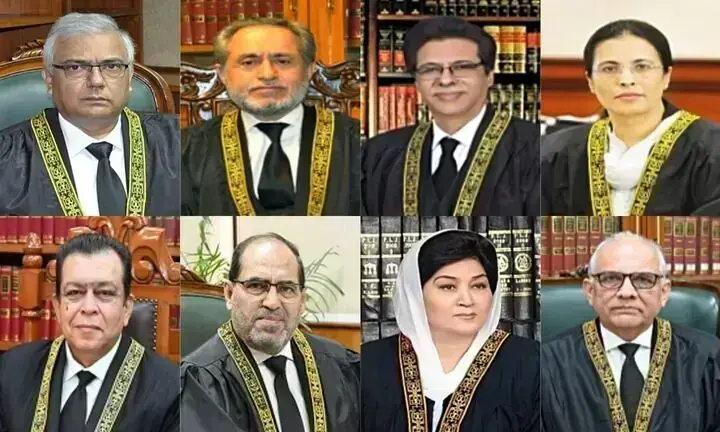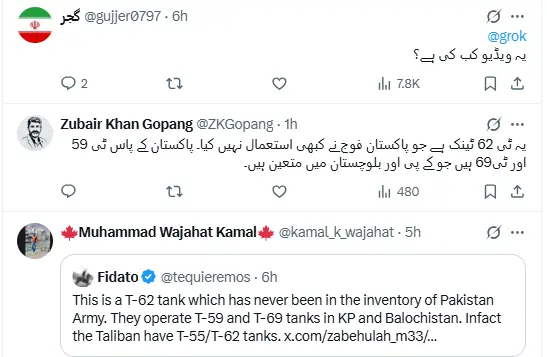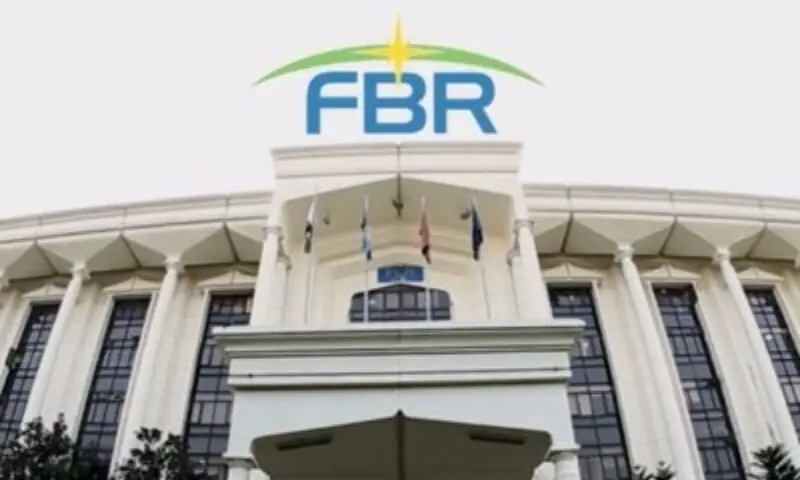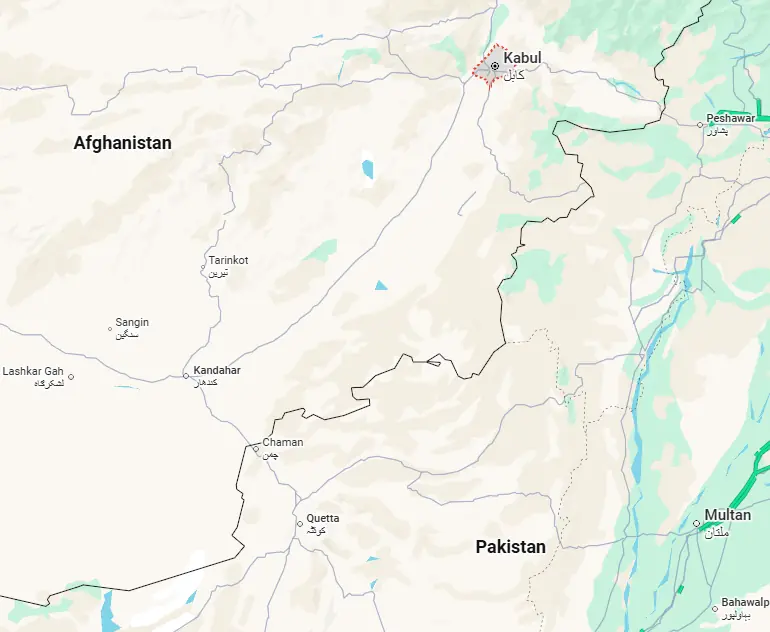Justice Ayesha Malik on Wednesday wondered whether Article 191A of the Constitution meant that a full bench could no longer be formed while the Constitution Bench (CB) of the Supreme Court (SC) was hearing petitions against the 26th Amendment.
Article 191A was an addition to the Constitution made under the 26th Amendment to form constitutional benches in the Supreme Court to specifically deal with cases relating to constitutional issues, with its judges appointed by the Judicial Commission of Pakistan (JCP).
The amendment was passed by Parliament during a night session in October last year, with the PTI claiming that seven of its lawmakers were kidnapped to curry favor as the party opposed the legislation. The Balochistan National Party-Mengal (BNP-M) also alleged that its two senators were being pressured, and both subsequently defied the party line to vote in favor of the adjustments.
The legislation, which altered the authority and mandate of the judiciary, has been a focus of debate, with both opposition parties and legal experts questioning its impact on the independence of the judiciary.
The adjustments removed the suo motu powers of the SC, fixed the tenure of the Chief Justice of Pakistan (CJP) at three years and empowered a Special Parliamentary Committee for the appointment of the CJP from among the three most senior judges of the SC. It also paved the way for the formation of the CB, which is now hearing petitions against the very legislation that allowed its establishment.
The bench hearing the allegations is headed by Justice Aminuddin Khan and also includes Justices Mazhar, Jamal Khan Mandokhail, Ayesha Malik, Syed Hasan Azhar Rizvi, Musarrat Hilali, Naeem Akhtar Afghan and Shahid Bilal Hassan.
Senior Counsel Abid Shahid Zuberi, also former President of the Supreme Court Bar Association (SCBA), today continued his arguments for the fourth consecutive hearing. The hearing was adjourned until October 20 (Monday).
So far, Zuberi, Lahore High Court Bar Association (LHCBA) lawyer Hamid Khan, Balochistan High Court Bar Association (BHCBA) lawyer Munir A. Malik and the petitioner lawyer Salahuddin Ahmed have presented their arguments.
They have sought formation of a 16-member full court based on the number of judges present in the SC in October 2024, when the Amendment was passed. The judges have questioned whether the CB has the power to issue orders for the constitution of a full court, as requested by the petitioners.
today’s audience
At the beginning of the hearing, petitioner lawyer Akram Sheikh raised the issue of “good judicial environment”.
To this, Justice Mandokhail, referring to his exchange with Justice Ayesha yesterday, said: “What happened yesterday should not have happened.”
Sheikh also urged the court to set a deadline for the lawyers to present their arguments, to which Justice Aminuddin noted that the time restrictions applied to all.
Assuring the court that he would conclude his arguments today, Zuberi said he would cite previous court orders that define the difference between a tribunal and a full court.
Justice Hilali then asked whether judges will have to stop calling a full court a court, to which Zuberi responded in the affirmative. Citing various rulings, the lawyer stated that establishing the benches was the responsibility of the Practice and Procedure Commission.
Zuberi reiterated that he was requesting a full court and added: “You can [only] form a bank.”
Justice Mazhar noted that the verdicts cited by Zuberi predated the passage of the 26th Amendment, when Article 191, under which the CB was formed, was not present.
Justice Mazhar said: “The Constitutional Bench can hear the 26th Amendment case. If necessary, all judges of the Constitutional Bench can be included.
“But you’re saying so-and-so judge should be part of this, and the others shouldn’t, so this is strange.” he added.
Zuberi then responded that there were no restrictions on the BC referring the matter to the CJP. Justice Aminuddin commented: “It is one thing to refer a matter to the Chief Justice and another to issue a court order.”
Zuberi was then asked to read clauses 3 and 5 of Article 191A of the Constitution. Justice Ayesha asked, “Is there any rule that prevents this bench from issuing a court order to form a full court? What prevents us from ordering the Judicial Commission to appoint all judges as judges of the Constitutional Bench?”
“Are we saying that the Judicial Commission is above the Supreme Court?” she asked.
Given this, Justice Mandokhail observed that the SC could revoke any unconstitutional decision taken by the PCJ. “I recognize that there is no impediment for the PCJ to nominate all judges as part of the Constitutional Chamber,” he said.
In this case, Justice Aminuddin commented: “The Constitution will be read as it is written here; interpretations cannot be made at will.”
Justice Mazhar then said he agreed with Justice Ayesha’s interpretation of Article 191A.
Addressing Zuberi, he said: “Now your arguments will change… Suppose the Judicial Commission nominates all the judges as part of the Constitutional Chamber, now who will form a full court? According to you, the [Practice and Procedure] The committee only has the power to form seats.”
Justice Mazhar asked whether the CB should form a full court or send the matter to the JCP, to which Zuberi replied that the matter should be sent to the CJP. Judge Mazhar commented that Zuberi’s argument was over then. Zuberi maintained that the chief judge could constitute a full court if he were the head of the CB.
At one point in the hearing, Justice Rizvi asked if there were examples from other countries, where CBs had existed for a long time, of sending constitutional matters to regular courts. Zuberi responded that he was not aware of any such case, but argued that South Africa’s highest court could hear appeals from decisions made by its constitutional court.
Justice Mandokhail pointed out that in India, the Chief Justice had the authority to form CBs, but the situation in Pakistan was different as the CJP did not have that power. Justice Aminuddin noted that Zuberi wanted a 16-member court rather than a full court.
Justice Ayesha then commented: “Does Article 191A mean that a full court can never sit now? Decisions of a larger court can no longer be overturned?”
“Our case is exactly this,” Zuberi said, to which Judge Ayesha asked him for arguments on his request to form a full pre-Amendment court. The Afghan judge questioned what would happen if all judges could not be nominated to the CB in the JCP voting process, even if the current court orders the commission to do so.
“Can we influence this voting process? Can we stop the voting process with a court order?” asked. Zuberi responded that the OC could still approve the directives and that it was the PCJ’s authority to decide who could be included in the OC.
Here, Justice Mandokhail recalled: “The committee requested the Judicial Commission once or twice to give us more judges, [but] There was an objection in the Commission not to take the name of any judge, but rather to specify the number of them.”
Justice Aminuddin observed that as OC chief, it was his “privilege” to suggest to the JCP names of judges for the OC. At one point, Justice Hilali commented that the entire court matter could only be sent to the Chief Justice as the PCJ could nominate the rest of the CB judges but could not include other CB judges.
During the hearing, Justice Aminuddin also stated that the Supreme Court currently had a total capacity of 34 judges.
Justice Hilali commented: “If we go back to before the 26th Amendment and we want the Chief Justice to form a full court, then the Chief Justice (Yahya Afridi) is a beneficiary of the 26th Amendment. So, [senior puisne judge] Justice Mansoor [Ali Shah] is a party affected by the 26th Amendment. Does this mean that the matter will return to Justice Aminuddin again?
Zuberi responded that it would be the discretion of the chief justice and that he could not “dictate” the matter. “I cannot form a court of my choice. I am only saying that this is an important case in this country; the collective wisdom of all the judges must be present.”
The former president of the SCBA argued that although the laws established that the CB would hear constitutional matters, nowhere was it written that a full court could not hear them. He added that neither the jurisdiction of the full court was taken away by Clauses 5 and 8 of Article 191A, nor was its authority to issue court orders limited.
Here, Justice Mandokhail asked the lawyer whether the CB could consider the amendment while challenging it or not. Zuberi responded that the judges could and that he had no objections.
Judge Mazhar obliquely recalled an objection raised in an earlier hearing by a lawyer who urged the court to ignore the 26th Amendment. “I have not said it. You can consider it. It is part of the Constitution; therefore, we challenge it,” Zuberi responded.
Justice Hilali wondered whether the present OC could issue orders in the capacity of the Supreme Court. When Zuberi said he could do so, Judge Mandokhail observed: “You are saying two different things. […] On the one hand, you are saying that we can hear the case, but on the other, you are saying that judges subject to the 26th Amendment cannot.”
At one point, Judge Hilali asked Zuberi if he had challenged only the amendments related to the judiciary.
The lawyer responded negatively, detailing that He had also questioned the adjustments related to the Election Commission of Pakistan (ECP).. An amendment made to Article 215 allows the Chief Electoral Commissioner (CEC) and a member of the ECP to continue holding office until their successor assumes office,” irrespective of the expiration of their tenure.
Justice Mandokhail pointed out the amendments relating to the right to a clean environment and riba, and asked whether they had also been challenged in the petition. Zuberi responded negatively.
However, he added, “I have also questioned the procedure by which the Amendment was passed. Our main problem is the independence of the judiciary.”
Zuberi then concluded his arguments. The hearing was later adjourned until Monday.









